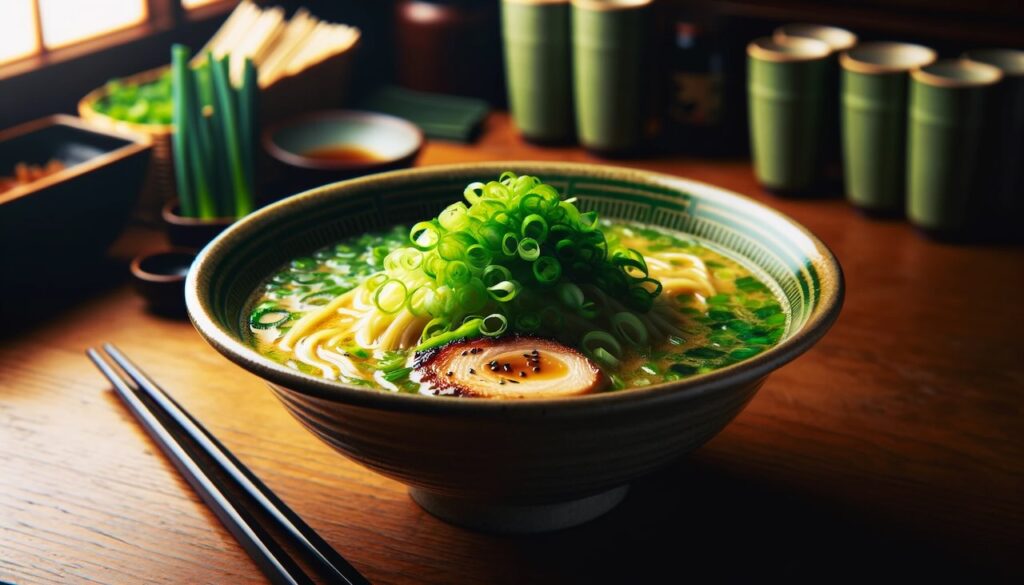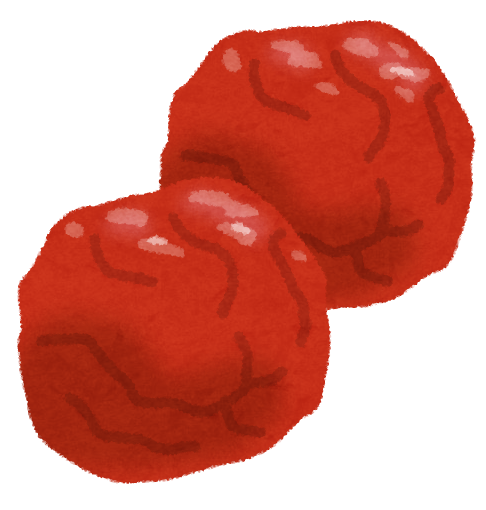When the garnish becomes the main event
If you’ve ever been to a ramen shop in Japan that lets you add as much green onion (negi) as you like, you’ve probably seen (or created) bowls so full of chopped scallions that the noodles disappear underneath a sea of green.
For green onion lovers, it’s heaven. But here’s the question no one’s asking out loud:
Can you eat too much negi—and should you?
Let’s dive into the science behind green onions in ramen: their health benefits, the risks of overdoing it, and how to strike the perfect balance between flavor and well-being.
What Makes Green Onion So Good for You?
Far from being just a topping, green onions are packed with compounds that support overall health. Here’s what your bowl of ramen is really bringing to the table:
Vitamins and Minerals
Negi is rich in:
- Vitamin A – helps maintain healthy skin and vision
- Vitamin C – a powerful antioxidant that supports the immune system
- Potassium – aids heart health and regulates fluid balance
Together, these nutrients help your body stay resilient, energized, and youthful.
Allicin: Your Natural Antiviral Ally
When you slice fresh green onion, it releases a sulfur-based compound called allicin.
This is the same substance that gives garlic its superfood reputation.
Allicin has been shown to:
- Fight bacteria and viruses
- Strengthen the immune system
- Help ward off colds and flu
In short: fresh, raw negi is a functional food with built-in defense mechanisms.
Gut-Friendly Fiber
Negi also contains dietary fiber that helps:
- Promote smooth digestion
- Alleviate constipation
- Feed beneficial gut bacteria
And since gut health is closely linked to immunity, mood, and even skin clarity, your ramen topping may be doing more for you than you think.
But Yes—You Can Have Too Much
Even the healthiest foods can backfire if eaten in excess. Here’s what happens when your love for negi gets out of hand:
Overheating the Body
Green onions have a warming effect (known in Eastern medicine as yang energy).
In winter, this can be helpful—but in hot weather, overconsumption can cause:
- Excess body heat
- Trouble cooling down
- Heightened risk of heatstroke or dehydration
Digestive Discomfort
Too much raw negi can irritate the digestive tract, especially in people with:
- Sensitive stomachs
- Gastritis or acid reflux
- IBS or other intestinal disorders
Symptoms may include bloating, stomach cramps, or indigestion.
Rare but Real: Allergic Reactions
Some people are allergic to alliums like green onions.
Though rare, symptoms may include:
- Skin rashes or hives
- Swelling of the lips or throat
- Difficulty breathing
If these occur, seek medical attention immediately.
Nutritional Imbalance
Relying too heavily on any one ingredient—even a healthy one—can crowd out other essential nutrients.
A balanced bowl of ramen (or any meal) should include a variety of vegetables, proteins, and carbs—not just mountains of green.
So, How Much Negi Is Just Right?
There’s no universal answer, but here’s a good starting point:
Recommended Daily Amount
For healthy adults, 1–2 tablespoons (about 10–20 grams) of chopped green onion per day is a safe, beneficial amount.
In ramen, this is roughly a small handful—enough to enjoy the flavor and reap the benefits without pushing your body into overdrive.
Know Your Own Limits
Everyone’s different. If you have a sensitive gut or notice changes in your body after eating lots of negi, dial it back.
On the flip side, if your body handles it well, the occasional “negi mountain” probably won’t hurt—just don’t make it your daily default.
The Takeaway: Flavor with Balance
Green onions are more than a garnish—they’re a powerhouse of nutrients and plant-based defenses.
But their benefits only shine when consumed mindfully and in moderation.
Here’s how to make the most of negi in your meals:
- Enjoy it fresh to activate immune-boosting compounds
- Use it to support digestion and gut health
- Pair it with a balanced meal that includes proteins, grains, and other vegetables
- Pay attention to how your body responds
So next time you visit your favorite ramen shop, go ahead—add that extra scoop of green onion.
Just don’t forget: health is in the balance, not the pile.


